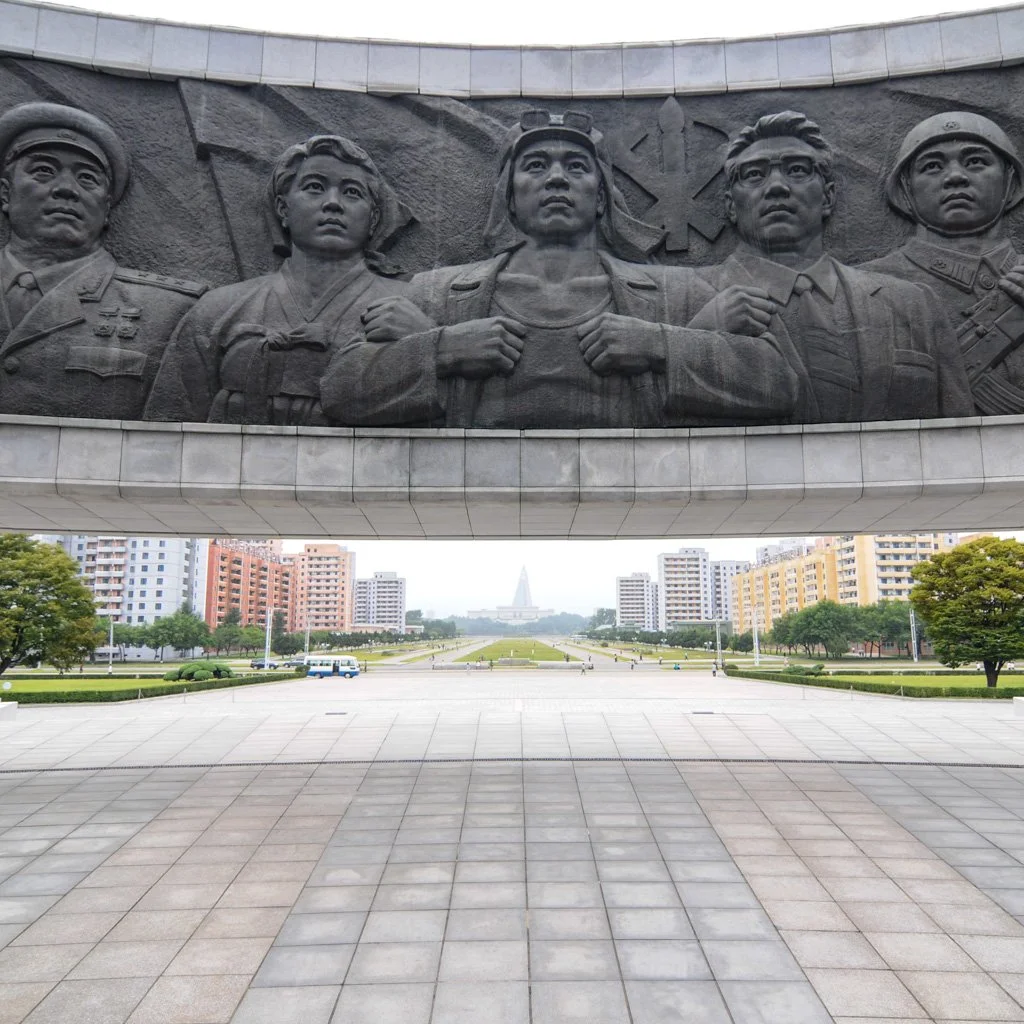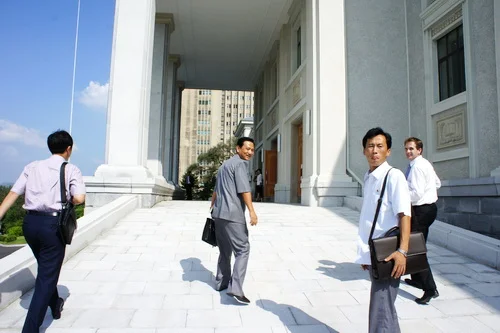Photo courtesy of the Korea Economic Institute. Compiled by Greg Levine Economist at a major global commercial and investment bank
The following is a resource guide on learning about the banking sector which we compiled for North Korean students studying overseas as well as for our in-country programs.
Issue of bank assets and asset management
The Bank for International Settlements has an excellent website for free research on developments in bank asset management. (http://www.bis.org/)
Some good papers of possible interest:
"Sound credit risk assessment and valuation for loans" (http://www.bis.org/publ/bcbs126.pdf)
"Supervisory guidance for assessing banks’ financial instrument fair value practices" (http://www.bis.org/publ/bcbs145.pdf)
The Euromoney website offers some good information on many of these topics as well. (http://www.euromoney.com/)
A summary "How to" guide on bank liquidity management.
(http://www.euromoney.com/images//502/77344/Liquiditymanagement_sept10_WEBFINAL.pdf)
The NY Federal Reserve has a very good website with dozens of topics related to banking, supervision, and asset management. (http://www.newyorkfed.org/index.html)
Their report on foreign exchange risk management might be good for banks with extensive foreign exchange exposure.
- "Management of Operational Risk in Foreign Exchange" (http://www.newyorkfed.org/fxc/2004/fxc041105b.pdf)
Issue and trade of stocks, asset investment, securitization, fundraising and management
Investopedia is a good investor site. They have good basic articles on trading stocks, characteristics of the market, and other assets. (http://www.investopedia.com/)
Their "investing basics" article has a good overview that links to many other articles: http://www.investopedia.com/articles/basics/
Types of bank loans, collaterals and guarantees
Very basic background on bank loan types. (http://www.ehow.com/about_4672890_types-bank-loans.html)
A short introduction on defining bank debt. (http://www.ehow.com/about_7237606_define-bank-debt.html)
[this topic can get complex, but the Federal Reserve site has some articles on this as well; let me know if you have any questions]
Law and regulations concerning bank management
The Federal Reserve publishes regulations on bank services based on U.S. law. This site is huge but can be useful if you have a detailed question in mind. (http://www.federalreserve.gov/bankinforeg/reglisting.htm)
Accounting principles concerning bank and its financial statement
Basic accounting information and overview can be found at a free online accounting textbook. (http://www.principlesofaccounting.com/chapter1/chapter1.html)
Issuing of banking cards and its settlement system
A good background on credit cards and settlement systems: (www.cardpaymentsolutions.com/docs/Bankcard_101.doc )
For more details on settlement systems and developments, you can reference the BIS website:
"Principles for financial market infrastructures - consultative report" (http://www.bis.org/publ/cpss94.htm)
Bonds trading on international financial market
Wikipedia has a good overview of the bond market here: (http://en.wikipedia.org/wiki/Bond_market)
For details, try Securities Industry and Financial Markets Association (SIFMA). The SIFMA site is excellent and provides data as well as reports and educational material. http://www.sifma.org/research/
Their page on bond markets might be very useful for you:
http://www.sifma.org/Education/Industry-Basics/Capital/Securities/
A few more sites you might be interested in ...
McKinsey & Co. offers an interesting background on Asia banking opportunities. Membership to the site is free, and they provide regular emailed reports on industries if you sign up for them.
https://www.mckinseyquarterly.com/PDFDownload.aspx?ar=2763&srid=17
Their recent article on "Asia's $1 trillion infrastructure opportunity" gives some basic infrastructure / financing principles along with some of the opportunities being looked at these days in Asia.
https://www.mckinseyquarterly.com/PDFDownload.aspx?ar=2765&srid=17










